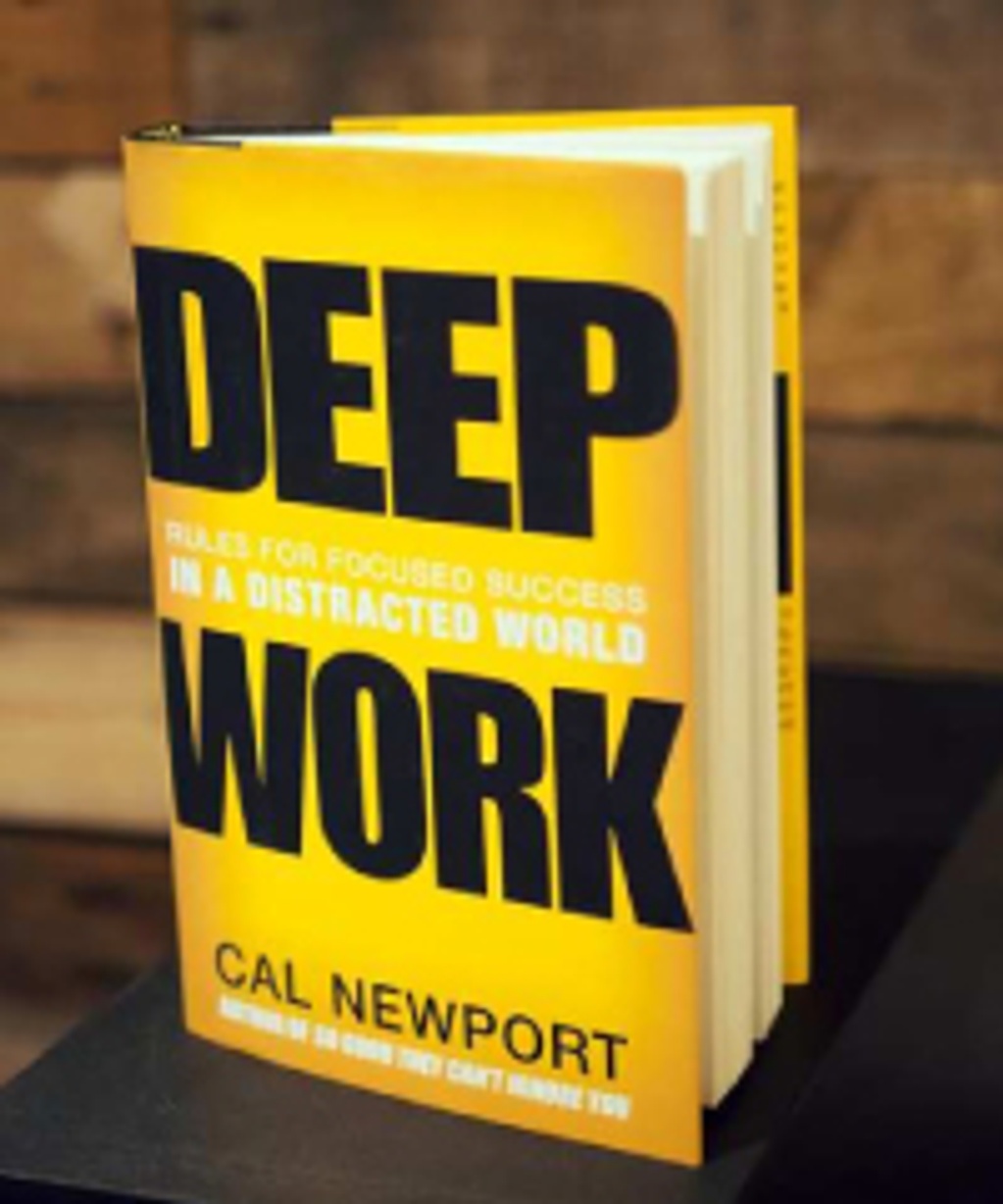
Schedule Time for Deep Work
January 20, 2020Make it part of your Leader Standard Work.
How many times an hour do you get interrupted at work? I was having a conversation with one of our developers recently about this - in retrospect, I realize I may have been interrupting her - and she estimated that it happens about six times an hour, or roughly every 10 minutes. Regardless of whether these interruptions are water‐cooler conversations or an urgent heads‐up, they still create dozens of instances a day when our brains have to pivot back to what they were doing before.
I thought about this conversation again recently when I was at the airport listening to a favorite podcast of mine, NPR's Hidden Brain. In the episode, host Shankar Vedantam spoke to Cal Newport, a computer scientist at Georgetown University and author of Deep Work: Rules for Focused Success in a Distracted World. It turns out, Newport tells Vedantam, that our brains are terrible at closing a door on one task as we switch to another; instead, what's called an "attention residue" clouds our focus for a bit after the switch.
Newport's solution to this pervasive problem is deep work, which he defines in his book as "professional activity performed in a state of distraction-free concentration that pushes your cognitive capabilities to their limit." The "deep" in "deep work" doesn't necessarily mean "profound" - it just means you're devoted to a relevant, value‐added task without the outside world constantly intruding.
Working on the business instead of in the business, and rigorously defending the place this time claims on your schedule.
There's a great deal of Newport's research on deep work that connects to the world of operational excellence, especially when it comes to how deep work actually can take place. Newport recommends blocking time on your calendar, finding an ideal location where you can focus, and making this a regular part of your schedule. This is a form of leader standard work, but not the kind that gets leaders out where the work is being done, keeping a pulse on the business and collaboratively pushing the lean culture forward. That is mission‐critical leader standard work - but so is the kind where you're free from distractions, working on the business instead of in the business, and rigorously defending the place this time claims on your schedule.
It turns out, though, that other people aren't the only ones distracting us from the "single‐tasking" that's at the heart of deep work. How often do you give in to the urge to "just check" – your email, a social media account, the latest news – without considering it a true distraction? In the Hidden Brain episode, Newport notes that we're too often our own worst enemies, especially when the whole world can fit in our watch. This is where we have to do the tough but essential work of depriving ourselves, albeit briefly, of the simplicity, convenience, and instant gratification that our technological distractions afford us.
Even with all the obvious benefits of a focused and diligent approach to the work that matters, deep work and leader standard work face the same nagging question: Doesn't all this scheduling zap the spontaneity that's often at the heart of innovation, inspiration, and creativity? I love Newport's answer to this question on the podcast, so I'll leave you with it:
"If you're systematically pushing yourself and your knowledge and your craft, you will have inspiration… What's important is that you're setting yourself up to have that inspiration and then giving yourself the time and structure to act on it."

President • MoreSteam
Peg Pennington joined MoreSteam's executive team in 2018 and today leads all company operations as President. Previously, Peg was the Executive Director of the Center for Operational Excellence at The Ohio State University, where she helped shape the Master of Business Operational Excellence ('MBOE') program and strengthen standards for Lean Six Sigma certification. She serves on the board of directors for the Lean Enterprise Institute (LEI). A recognized voice in operational excellence, Peg speaks at over a dozen national conferences each year and leads product workshops.
Before joining MoreSteam, Peg was the Executive Director of the Center for Operational Excellence at The Ohio State University. Peg holds a bachelor’s degree in finance from Michigan State University and an MBA from the University of Dayton.





